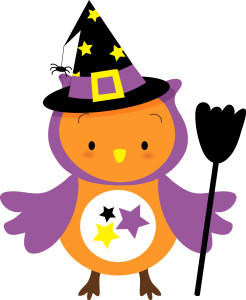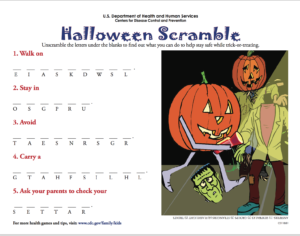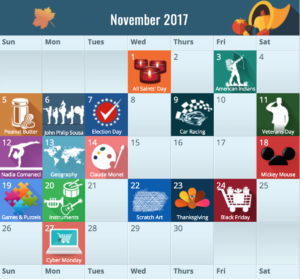 Halloween (or Hallow e’en) is a celebration observed in a number of countries including the United States on October 31st. Halloween has a special significance for children, who dress in funny or ghostly costumes and knock on neighborhood doors shouting “Trick or Treat!” Pirates and princesses, ghosts and witches all hold bags open to catch the candy or other goodies that the neighbors drop in.
Halloween (or Hallow e’en) is a celebration observed in a number of countries including the United States on October 31st. Halloween has a special significance for children, who dress in funny or ghostly costumes and knock on neighborhood doors shouting “Trick or Treat!” Pirates and princesses, ghosts and witches all hold bags open to catch the candy or other goodies that the neighbors drop in.
Since the 800’s, November 1st is a religious holiday known as All Saints’ Day. The Mass that was said on this day was called Allhallowmas. The evening before became known as All Hallow e’en, or Halloween. Like some other American celebrations, its origins lie in both pre-Christian and Christian customs.
The most popular Halloween activities include trick-or-treating attending Halloween costume parties, decorating, carving pumpkins into jack-o’-lanterns, lighting bonfires, apple bobbing, playing pranks, visiting haunted attractions, telling scary stories, and watching horror films.
For more information and a “how-to” video on carving a pumpkin, click here. Find more pumpkin carving ideas, scary snacks, and other fun Halloween activities on the APIA Halloween Fun Pinterest board.
Halloween can be a lot of fun but it is also a time when safety should come first. Here are some tips for Monday:
Adult supervision is essential. Always accompany the children if they are going door to door to trick or treat
Try tick-or-treat-friendly homes. Ensure the children only visit houses with lights on. And, you might also suggest the houses they visit have some sort of Halloween decoration on the porch.
Stay outside. Make sure the children don’t go inside someone’s house. They can trick or treat on the porch.
Remain visible. Dress the children in bright costumes or have them wear reflective strips or carry a glow stick or flashlight.
Quality-check treats. Check the candy before they eat it. Throw out any candy that is not in its original wrapper or looks like it has been tampered with.
Say “no” to strangers. Remind the children to never accept a ride or go anywhere with a stranger.


 Each month, Au Pair in America provides a calendar full of fun activities and helpful information for everyone in the family.
Each month, Au Pair in America provides a calendar full of fun activities and helpful information for everyone in the family.


